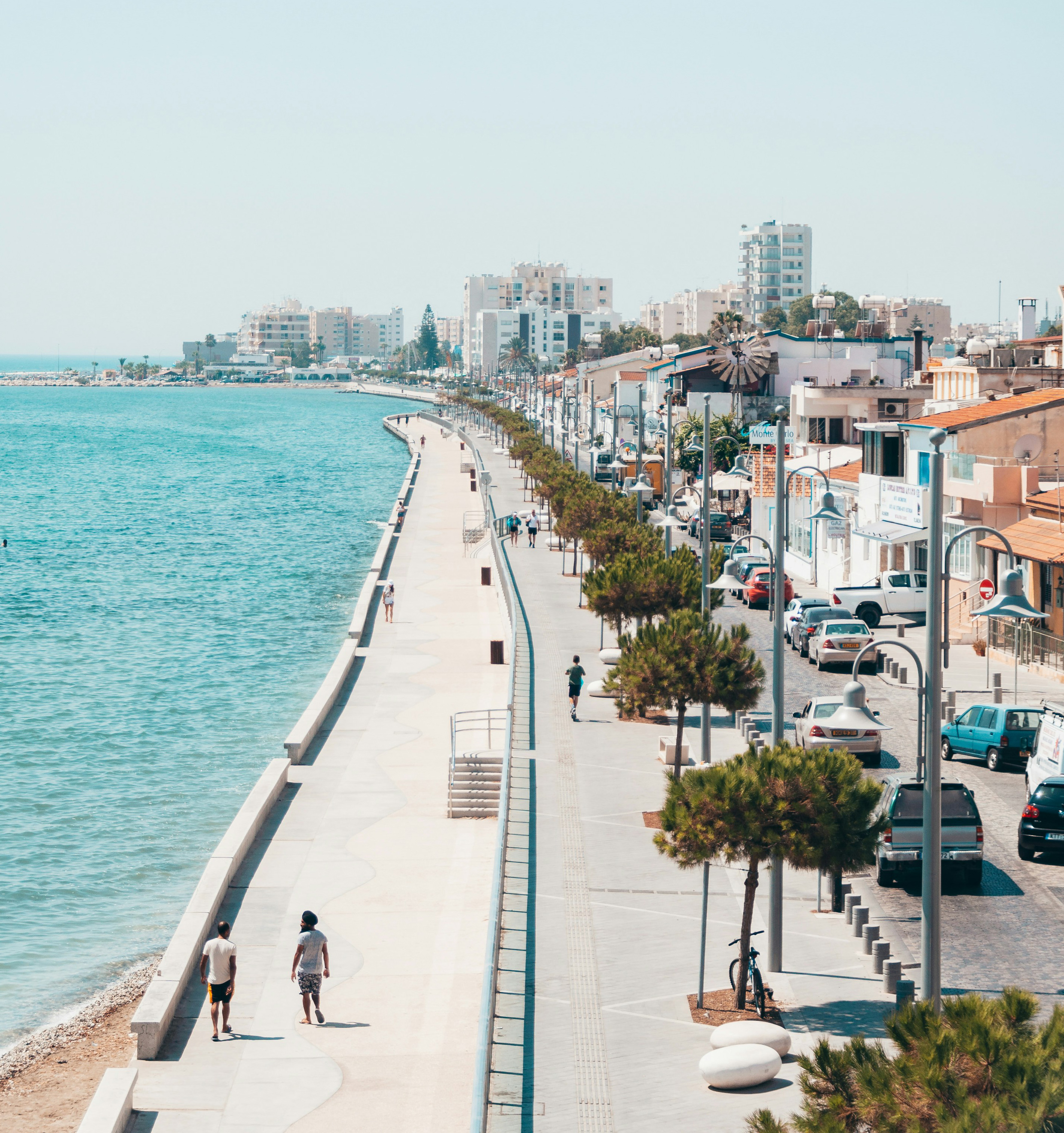The island might be ‘a unique place to live and work’ but why is getting in so difficult?
By Philippa Tracy
Back in May, President Nikos Christodoulides went to London, along with a number of senior executives from major companies operating in Cyprus, as part of the Minds in Cyprus campaign “to repatriate talent.” In August the government launched a new website: Minds in Cyprus, as part of that initiative.
It is obvious why the government is keen to appeal to the very large diaspora to encourage talented and experienced Cypriots to come back to Cyprus. According to the National Strategy on Cyprus Diaspora, there are over 800,000 Cypriots living abroad and “creating important islets of Greek and Cypriot culture” in places like the UK, the US, Australia, Canada and South Africa.
It would seem that there are as many, if not more, Cypriots living abroad as there are living in Cyprus. Strengthening the relationship with the diaspora, not only helps to promote the national interests of Cyprus, it may also play a part in encouraging people to come back. And according to Eurostat, Cyprus is currently experiencing a positive rate of net migration.

On the front page of the new website, you can download the plan in English or Greek, under a headline that reads: Cyprus Calls Its Minds Back. It might sound better in Greek. It definitely doesn’t sound great in English. But I did download the plan. Although, I couldn’t help but wonder why nobody had thought that something catchier, or at least a bit more earthy, might be a tad more inviting.
So, despite the seemingly mixed metaphors of minds being called or cast back from the diaspora, the plan itself sounds reasonably positive and robust. There is a lot about tax exemptions, as well as “business ambassadors”, a plan for a practical repatriation guide and a platform for job vacancies. Some information is already on the website; the website itself is due to be finished by the end of this year.
There is a page where you can fill in a questionnaire and express an interest in particular industries, to get connected with employment opportunities. Apparently, from September 2025, there is also an offer of “subsidised in-house training for adaptation to Cypriot work culture.” I’d be fascinated to understand what that involves; I could certainly talk a bit about my own recent experience of work culture in certain government departments.
Work culture aside, some other parts of the plan should already be in place, such as speeding up the registration process for health professionals, promoting faster recognition of EU specialty titles, as well as faster citizenship acquisition for spouses/partners of repatriates. I’m not sure what the time scales are here.
All I know is that my own experience was quite painful. And a friend who applied for citizenship a year ago, was told by an official that it would probably be another year before anyone opened the file. However, that may be because they are already here, rather than trying to repatriate.
In terms of other practical issues, there should already be “free or subsidised language education for integration of spouses and children” and some tuition subsidy for the children of repatriated Cypriots attending private secondary schools from this academic year.
This all sounds great. But on the specific issue of finding work here, in a professional role, where qualifications need to be recognised by KYSATS (the Cyprus Council for the Recognition of Higher Education Qualifications), it may not be that easy.
I recently spoke to one Cypriot talent who has been trying to repatriate for the last year, without much success. While he did not want to be named, he did tell me that he gave up a specialist job in healthcare in London to return to Cyprus. And the process was a lot more complicated than he thought it would be. The main hurdle being that the recognition of a professional qualification, is “a very lengthy process,” for something which he assumed would, and should, be “fairly straightforward.”
So what is the process? Having arrived in October 2024, he submitted his UK degree certificate, a transcript of the modules and some descriptions of the individual modules. He was told it would take about eight months to get a decision. It did take eight months to get a decision, but when the decision came, all it said was that his degree fulfils the criteria needed to be recognised as a BSc level degree. Which, of course, it does say on it.

The next stage is for it to be sent to a specific committee (he was unclear which committee) that compares the course content with the equivalent degree in Cyprus. He, wrongly of course, assumed that was what they were doing in the first eight months.
You might forgive him for feeling frustrated at this point. I certainly would be. He, on the other hand, seems pretty sanguine about it, explaining, the information was all submitted over eight months ago now; it just now needs to be re-submitted to a different panel. When asked how long he thinks this part of the process will take, he is not sure. Possibly another three months.
I asked if he has contact details for the new committee, or even any idea where the information has now gone? Or how often this committee sits? He does not know. But once they do look at his qualifications, if they decide that the course content is not the same, it may be that some new modules need to be studied here, in order to get the recognition, adding more time and more cost. Having looked at similar courses here, he tells me, “that is what I anticipate is going to happen.”
He is remarkably positive when telling me this. He says that staff have been helpful. He has no complaints on that front. He called and got an appointment fairly quickly. It sounds like so many government departments here: he got an initial appointment quite quickly. Papers were seen, papers were stamped and papers were put in a file. And then he waited. For months.
Until the qualifications are recognised, he is not legally able to practice his profession. This is something he says he was not aware of before coming back here. He admits that while he “assumed it would be relatively straightforward”, he probably should have looked into the process more before coming back.
“It’s off-putting. And makes you think twice about how committed you are to staying or whether it would be easier to go back to the UK or somewhere else.” One of the big hurdles of the process, is how to live while waiting for recognition.

In the meantime, he has been through the process of getting the necessary paperwork, and finding a job in Australia; he will be starting a new life there soon. “It’s a shame because I want to live here and I want to work here.”
His advice to anyone else who wants to come back, is to start the process a year before you plan to come. And perhaps a more streamlined process that allows people to work during the recognition process might make it easier. He has met a number of other professionals who have encountered the same problem.
The plan itself, as part of an attempt to reshape the economy, making it more resilient and more diverse, seems like a good thing. There is a link to positive testimonial videos on the Minds in Cyprus website with people talking about why Cyprus is “a unique place to live and work.”
Financial incentives, such as tax breaks and grant schemes for the self-employed and entrepreneurs, sound great, as do targeted interventions to help families settle back into Cyprus. But some parts of the process, such as recognition of qualifications, may benefit from being simplified and speeded up. According to the plan, there will be an option to submit suggestions by the end of 2025.
Details of the process and fees can be found on the KYSATS website, more general information on the Minds in Cyprus






Click here to change your cookie preferences